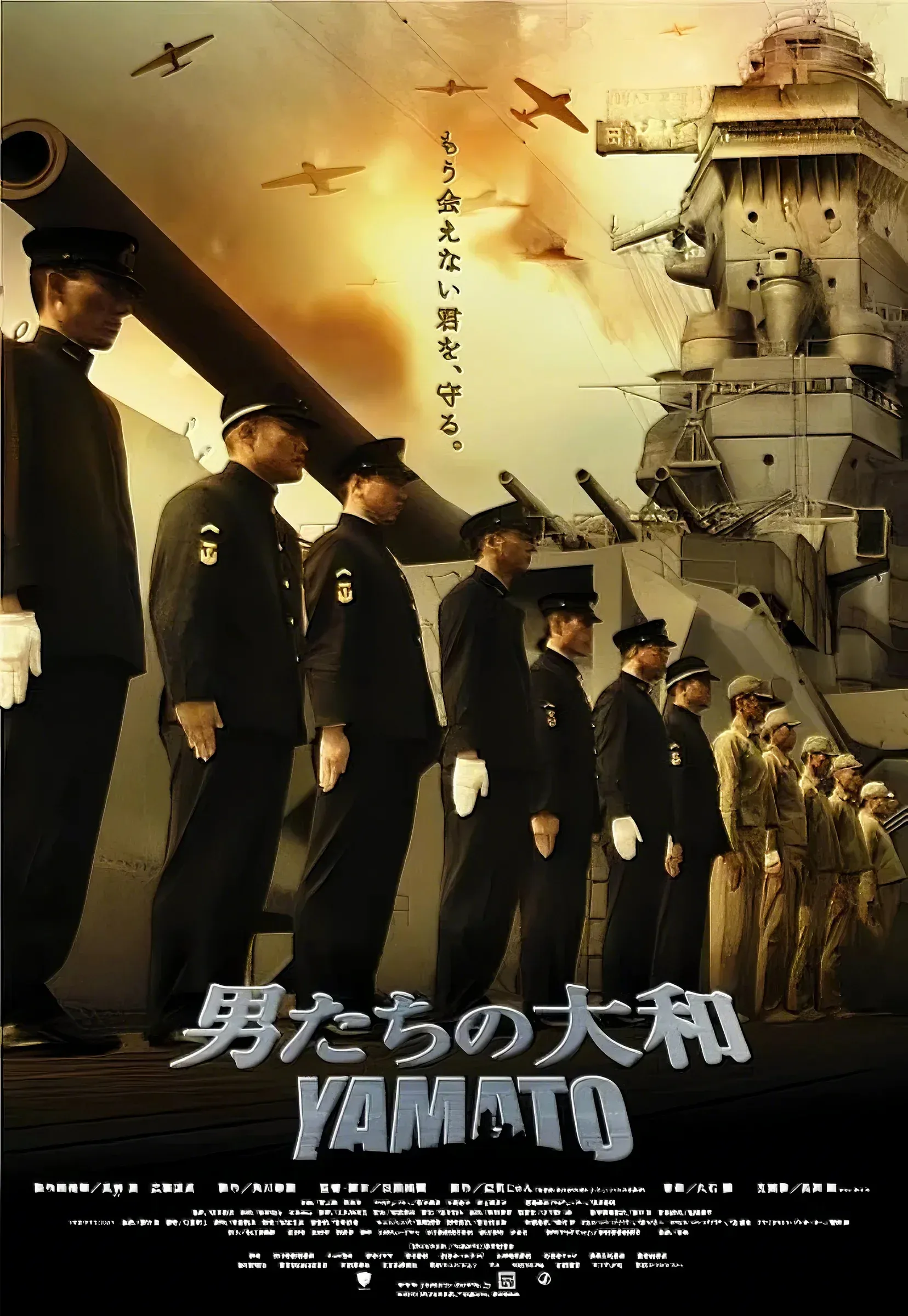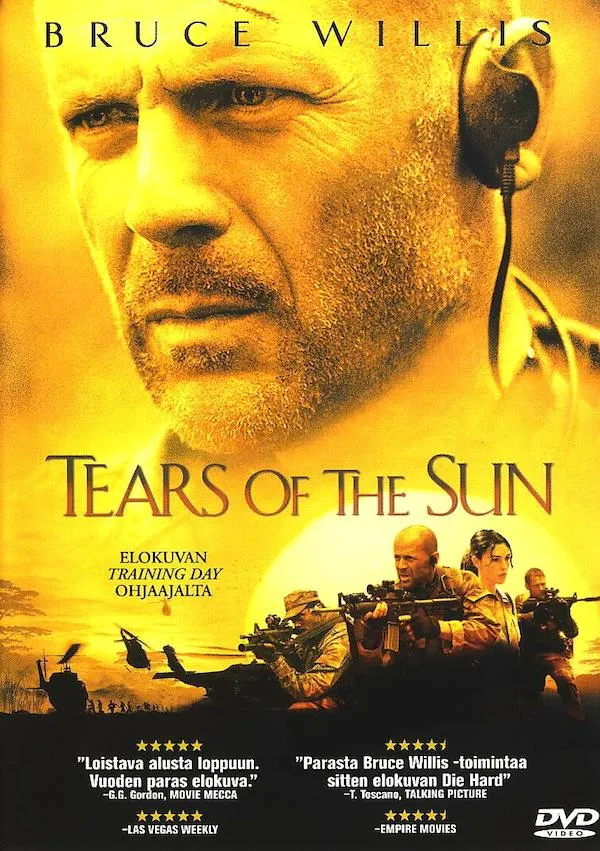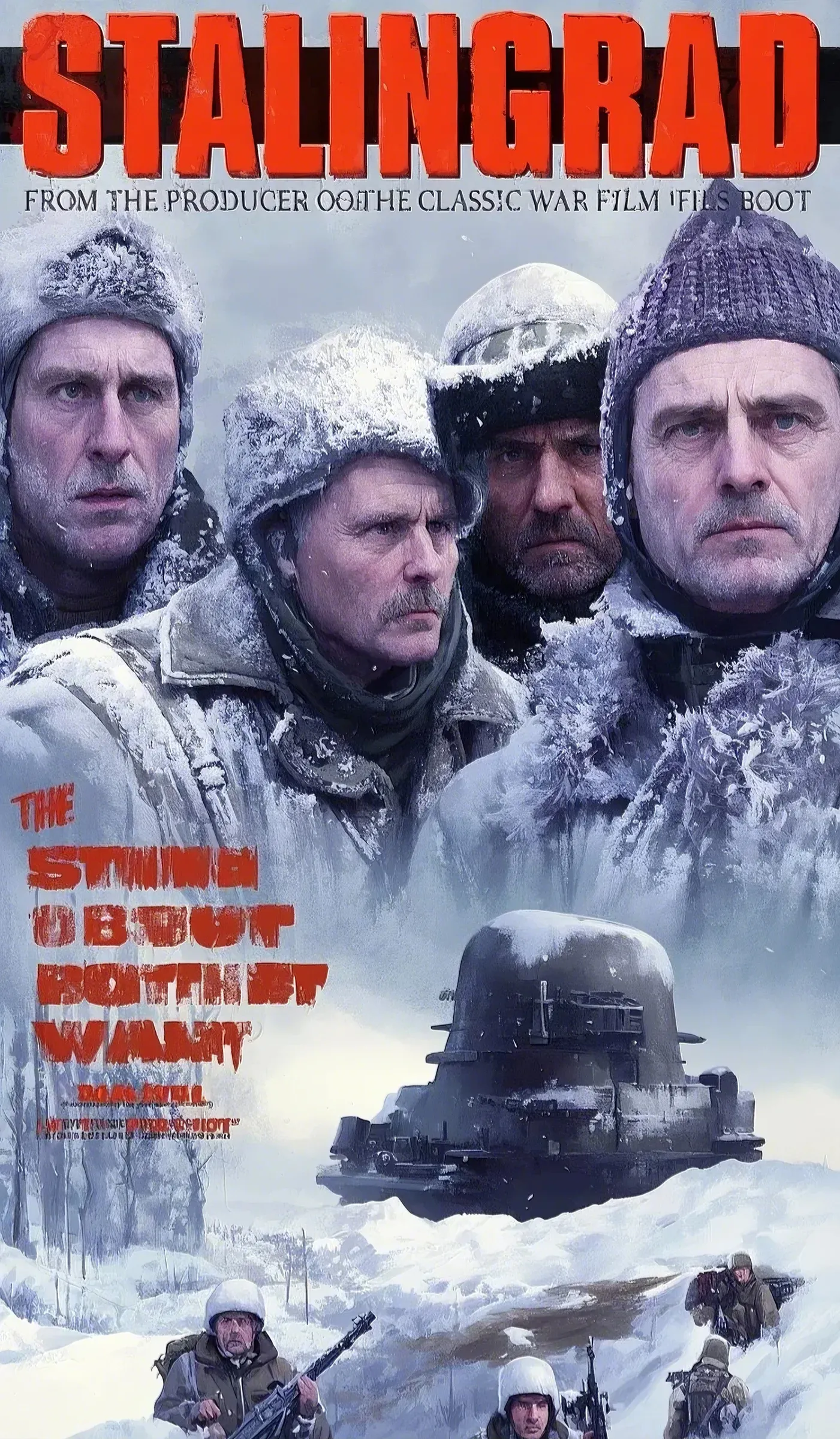Yamato (2005) – A Poignant Tribute to Japan’s Most Famous Battleship
Director: Junya Satō
Starring: Takashi Sorimachi, Shidou Nakamura, Kyoka Suzuki
Genre: War, Drama, History
Runtime: 145 minutes
Release Date: December 17, 2005
Introduction
Yamato (2005) is a deeply emotional and visually powerful war drama that recounts the final mission of the legendary battleship Yamato, the pride of the Imperial Japanese Navy. Directed by Junya Satō, the film blends historical war spectacle with human drama, showing the doomed mission through the eyes of its young crew.
Based on real events, Yamato portrays the final voyage of the battleship in April 1945 as Japan faced imminent defeat in World War II. The narrative unfolds through flashbacks as a modern-day journalist interviews a survivor, uncovering the tragic fate of the ship and the men who served aboard it.

Plot Overview
The film opens in present-day Japan, where a journalist is investigating the wreck of the Yamato. She tracks down an elderly fisherman named Katsumi Kamio (Tetsuya Watari), who turns out to be one of the ship’s last surviving crew members. As she urges him to share his memories, Kamio’s story takes us back to 1945, during the closing months of World War II.
The young Kamio (Shidou Nakamura) is among the many idealistic sailors aboard the Yamato, led by Captain Seiichi Itō (Masatō Ibu). Despite their strong morale and loyalty, they soon realize that their mission is essentially a suicide run—Japan’s last desperate attempt to slow the Allied advance. Ordered to sail to Okinawa and fight to the death, the Yamato and its crew prepare for their final stand.
The film showcases the strong bonds between the young sailors, their struggles with fear and duty, and the eventual devastating air attack by American forces. The climactic battle sequence is intense, as waves of U.S. aircraft bomb and torpedo the massive warship, leading to its dramatic sinking.

Cinematic Strengths
🔥 Emotional and Patriotic Storytelling
The film is not just about the battle; it focuses on the human side of war. It highlights the camaraderie, dreams, and sacrifices of young men who knew they were on a doomed mission. Their emotional farewell letters, final moments, and unwavering resolve add depth to the narrative.
🔥 Stunning Visual Effects & Realistic Battle Sequences
The film recreates the battleship Yamato with remarkable detail, using a mix of CGI and practical effects. The climactic attack, featuring overwhelming waves of American bombers and torpedo planes, is visually stunning and emotionally gripping. The destruction of the ship is depicted in a way that emphasizes both its grandeur and its vulnerability.
🔥 Strong Performances
Takashi Sorimachi (portraying First Officer Mamoru Uchida) and Shidou Nakamura (as young Kamio) bring powerful, heartfelt performances that capture the bravery and tragedy of the ship’s crew. The ensemble cast effectively portrays the youthful energy and grim determination of the sailors.
🔥 Hauntingly Beautiful Soundtrack
The score, composed by Joe Hisaishi, enhances the film’s emotional weight. The music shifts from grand and patriotic to deeply sorrowful, particularly in the film’s final moments.
🔥 Historical and Cultural Significance
The Yamato holds a special place in Japanese history, symbolizing both national pride and the futility of war. The film serves as a tribute to the sailors who perished while also reflecting on the cost of blind loyalty and military desperation.

Weaknesses
⚠ Nationalistic Overtones
While the film is a heartfelt tribute to the fallen sailors, it presents their sacrifice in a highly patriotic light, which may feel overly romanticized to some viewers. The perspective is primarily from the Japanese side, with little exploration of the broader consequences of the war.
⚠ Slow Pacing & Heavy Flashbacks
The film’s structure, shifting between past and present, can make it feel drawn out. Some viewers may find the present-day framing device unnecessary, as the war scenes are the true emotional core of the film.
⚠ Limited Focus on Strategic Context
The film primarily follows the individual experiences of the sailors, with little discussion of the larger military decisions leading to Yamato’s final mission. Those looking for a broader historical analysis may find it lacking in strategic depth.
Final Verdict
Yamato (2005) is a powerful war film that blends epic battle sequences with deeply emotional storytelling. While its nationalistic tone and slow pacing may not appeal to everyone, it remains a respectful tribute to the young men who fought and died aboard one of history’s most legendary battleships.
🔥 Rating: 7.5/10 – A moving, visually stunning war drama that honors the legacy of the Yamato and its crew.




